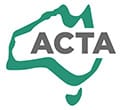8 tips for studying
|
e: [email protected]
Ph: 1300 660 809
Ph: 1300 660 809
Quicklinks
Language Training Institute is a Division of Universal Education and Training Ltd. Ltd. ABN: 75 090 720086
Australian Registered Training Organisation (RTO No. 30173).
View website terms of use
Australian Registered Training Organisation (RTO No. 30173).
View website terms of use
Where this website states:
- "Certificate IV" it is referring to the 11021NAT - Certificate IV in English Language Teaching (TESOL) qualification.
- "Diploma" it is referring to the 11020NAT - Diploma of English Language Teaching (TESOL) qualification.
- "Grad Cert" it is referring to the 11057NAT - Graduate Certificate in English Language Teaching (TESOL) qualification.
- "International Certificate" it is referring to the non-accredited specialised International TESOL Certificate training course developed by Language Training Institute.
Memberships:
© Language Training Institute (LTi) with thanks to freepik.com and unsplash.com



